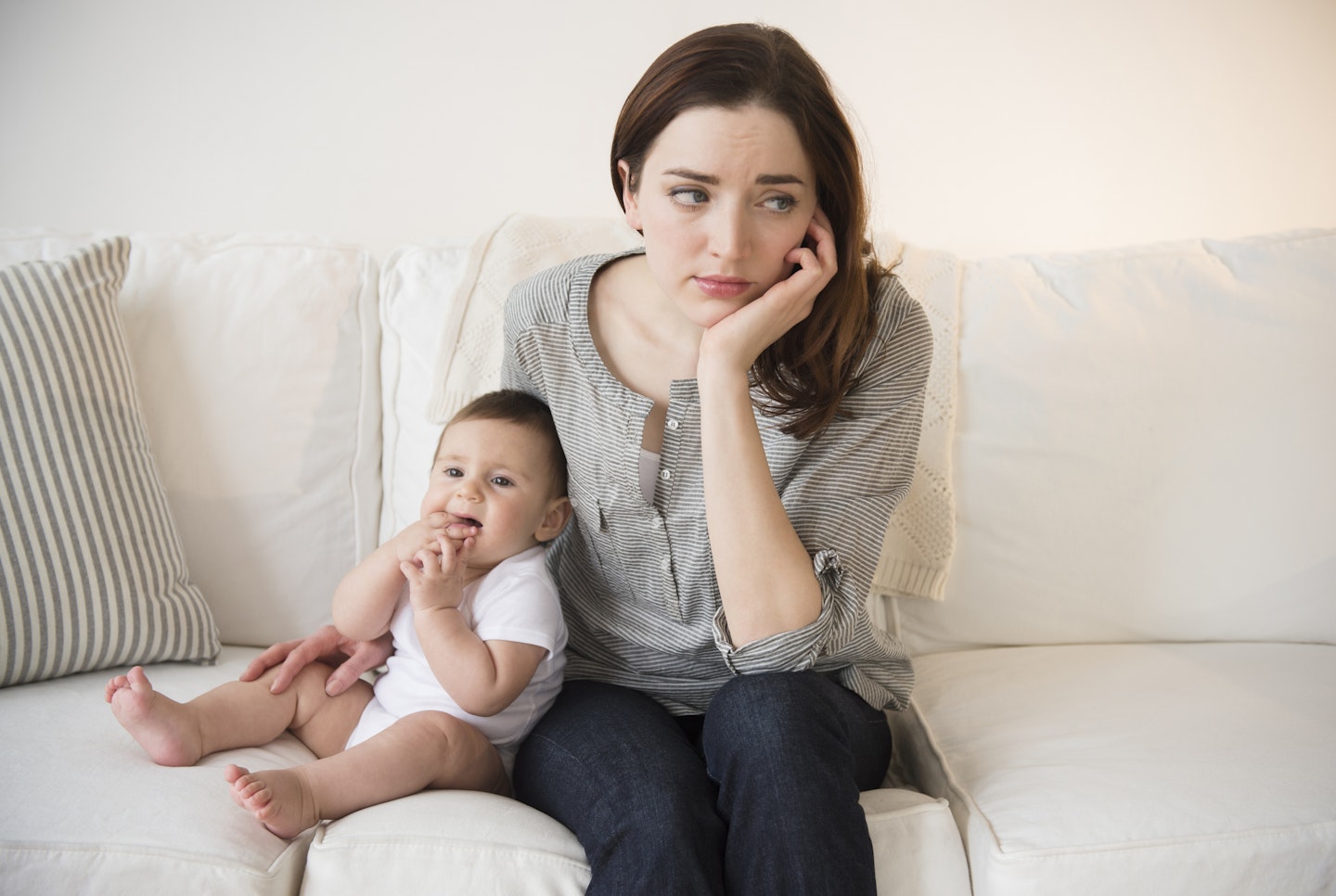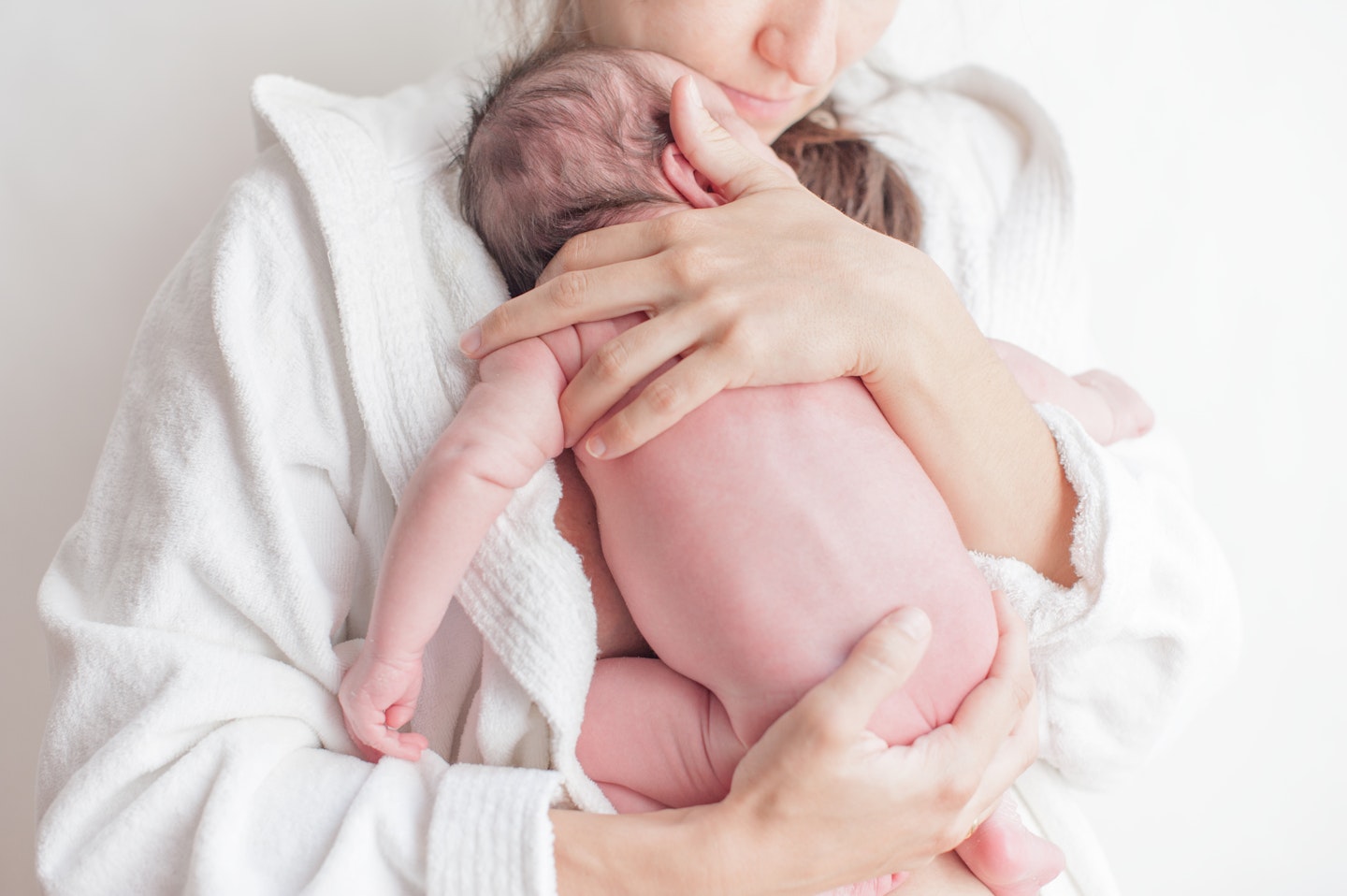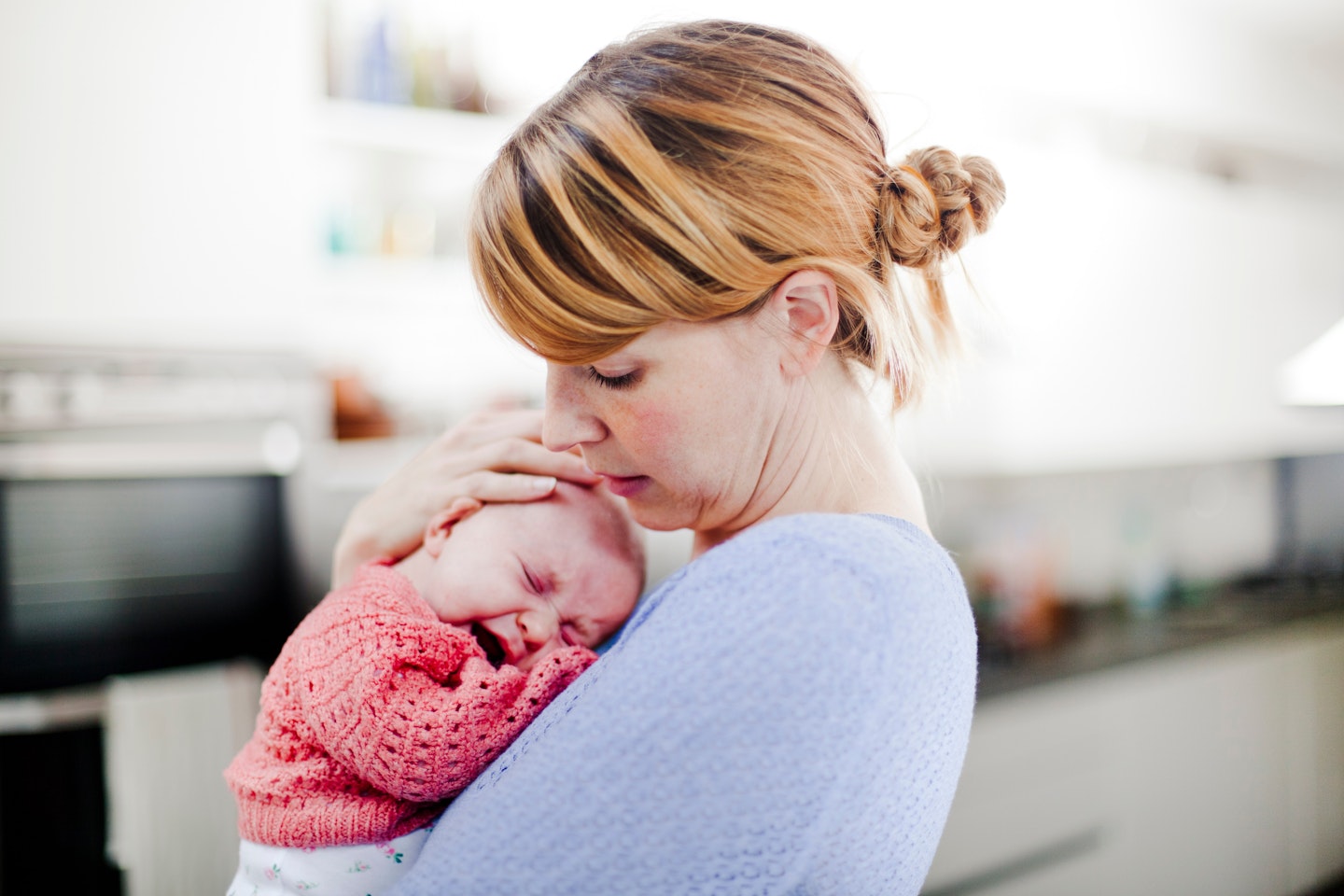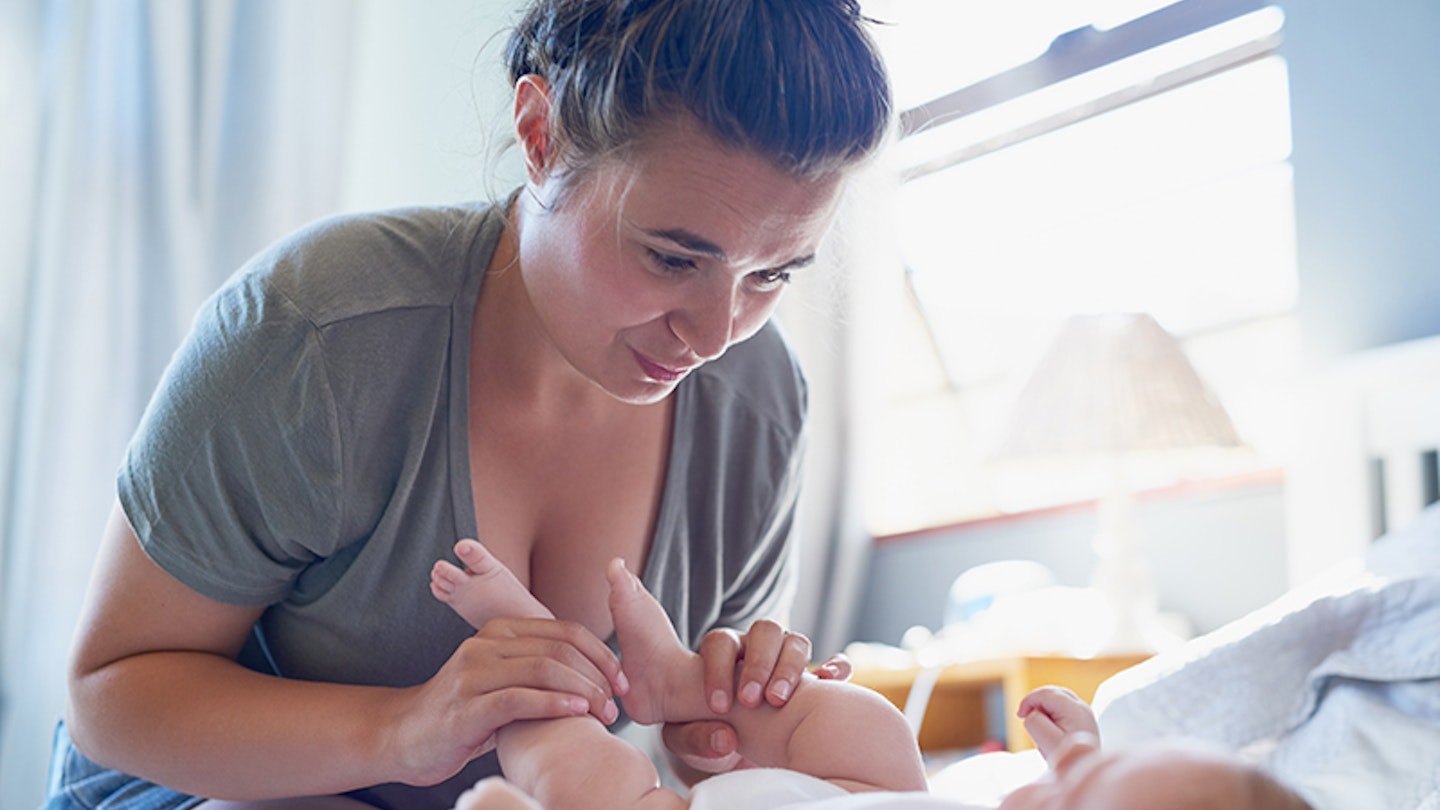Having a baby is supposed to be the most magical, exciting and wonderful time, and there is an enormous pressure on new parents to feel happy, positive, and like they have everything under control.
For many new mums, this big life-changing event and the pressure to be happy and excited can have a big impact on their mental health.
In fact,around one in ten women will experience a mental health problem during pregnancy or in the first year after giving birth, and it can alsoaffect fathers and partners too.
How do I know if it’s the baby blues or PND?

Many women feel a bit down, tearful or anxious in the couple of weeks after giving birth, due to the sudden drop in hormones and chemical levels, just after giving birth. This is often called the ‘baby blues’ and is so common that it's considered normal.
This period of feeling tearful, low, and a little out of sorts, doesn’t usually last for more than two weeks after giving birth, so if your symptoms last longer or start later, you could be experiencing postnatal depression.
PND, Also known as postpartum depression or antenatal depression, is the name for when a new mother experiences symptoms of depression in pregnancy, or the weeks and months after giving birth.
According to NHS UK, PND can start any time in the first year after giving birth and symptoms include:
-
A persistent feeling of sadness and low mood
-
Lack of enjoyment and loss of interest in the wider world
-
Lack of energy and feeling tired all the time
-
Trouble sleeping at night and feeling sleepy during the day
-
Difficulty bonding with your baby
-
Withdrawing from contact with other people
-
Problems concentrating and making decisions
-
Frightening thoughts - (for example, thinking about hurting your baby)
What it’s really like to suffer with PND?

Mum of Two, Emma, knows only too well that sharing how she felt, helped her get the help she needed through a really difficult time;
‘When I found out I was pregnant with my eldest son, I should have felt over the moon, it was a planned pregnancy! But I didn’t, it felt ‘wrong’ and I felt a sense of foreboding that I couldn’t rationalise’
I was fit and healthy during my pregnancy and had a lovely, normal home birth, but as the weeks went by and my husband (at the time) returned to work, I felt lower and lower.
I hated being at home and missed my job as a successful clinical psychologist.
I felt I didn’t understand my son's needs and was a ‘bad mum’ for feeling burdened by him.
I assumed all mums felt this way and suffered silently for weeks.
Being woken in the night took its toll. My husband would find me shouting at my son. I called him at work saying I didn’t know how to stop him crying and I was a mess.
I went to NCT sessions, and to playgroups, but these left me feeling even more isolated because everyone was so happy, and if I did say I hated being a mum, other distanced themselves from me as though they might ‘catch’ my negativity.
My heath visitor didn’t notice anything was wrong, even though I didn’t want to hold or breastfeed my son. Luckily, I had a lovely GP who realised what was happening.
My GP explained that I had postnatal depression and that it was very common, and prescribed antidepressants. After this I began, slowly, to recover.

When my son was only 4 months old, I found out I was pregnant again (an accident at the time but a blessing.) I stopped my meds because of the risks to the baby, (there are antidepressants that are safe to take during pregnancy and breastfeeding and this should be discussed with your GP before stopping meds,) but I sank into perinatal depression again, made worse by a bad hip, hideous sickness and total exhaustion with caring for a baby while pregnant.
My depression continued after another easy home birth, and every day I struggled with finding a reason to get out of bed and be alive.
My second son got bad reflux and wouldn’t sleep. I was beside myself with exhaustion and depression. I couldn’t sleep because I panicked at night, worrying that I was a bad mum, and did not understand my children or care enough about them. This time I changed GP so I would have a better health visitor.
I called the new health visitor and said I needed help. Claire was my guardian angel and I owe my sanity to her. She visited every week, gave me parenting advice, counselling, and support and made me feel positive about myself as a mum.
It is thanks to her and my ex-husband, that I am still here today. I honestly thought at the time that my children would be better off without me when at my worst. Over the next year, with therapy, anti-depressants, and support, I began to recover, went back to work, re-claimed my identity as a psychologist and began, slowly, to enjoy my boys.
They have been through so much with me and have never stopped loving me, and when I was able to love them back - it felt good!

I am still not sure exactly why I got postnatal depression, but I did have some risk factors;
I had experienced several bereavements before both my boys were born, and we had money worries too, and my own mother worked and was not able to be the role mother I felt I needed.
Research shows that risk factors for PND and postnatal anxiety include recent loss, difficult relationship with your own mother/family, traumatic birth or previous history of depression. Plenty of successful, previously well-balanced women, fall into depression post-birth and I was one of them.
It is often bewildering and heartbreaking for dads or partners to see their partner struggle, and they also can experience stress and depression as a result. The whole family needs support at this time.
By sharing my story, I wanted to make women aware that anyone can experience PND, and it is not something to be ashamed of. Not everyone will understand, but your good friends will, so do try and talk to them about how you are feeling. It is so common, you really are not alone.
PND is horrible but it does pass with support and help. I never thought it would, but it did and I LOVE my boys! We have so much fun together and they make me so happy.’
Emma’s top tips in getting through PND are:

-
Talk to your partner if you have one, and listen if they are concerned about you.
-
Talk to your good friends about how you are feeling and get advice and help.
-
Allow others to help. Don’t feel you have to do it all and don’t feel guilty or bad if this includes bottle-feeding. Do what you need to do to get through it.
-
Speak to your GP and consider anti-depressants. They don’t have many side-effects these days, and there are plenty that are very safe to use when breastfeeding.
-
If you have a good health visitor, ask for their support and find out about postnatal support groups so you feel supported and less alone.
-
Consider trying a talking therapy. This might include CBT (cognitive behavioural therapy) which helps you to develop more helpful ways of thinking and coping, or psychotherapy which will look more at earlier life experiences and make links to your current problems. There are NHS services in each area, and these are free.
-
Try and make time for yourself even for a short while and do some exercise, see a film or do whatever relaxes you.
-
Try and meet other mums, choose a one-to-one setting if easier and do fun, positive things with your little ones together, or just have a natter over tea and cake.
-
Contact a support organisation
As Emma said, PND can be a frightening and worrying time, but with appropriate treatment, care and support, most parents make a full recovery - but this can take time so surround yourself with supportive, understanding and kind people.
Always seek help and advice the minute you feel something isn’t quite right or you just don’t feel like yourself. There is never any need to suffer alone. You will not be judged or seen as a bad parent, that is so important to remember.
Organisations that can help
Sometimes reaching out online or going to support groups can really help. Ask your Health Visitor or GP for local support groups in your area. These groups often run group events that you could take a friend along with you to, for added support.
Online organisations:
-
Association for Post Natal Illness (APNI) – helpline on 0207 386 0868 (10am to 2pm, Monday to Friday) or email info@apni.org
-
Pre and Postnatal Depression Advice and Support (PANDAS) – helpline on 0843 28 98 401 (9am to 8pm, Monday to Sunday)
-
National Childbirth Trust (NCT) – helpline on 0300 330 0700 (8am to Midnight, Monday to Sunday)
Now read:
Mums reveal the moment they realised they had postnatal depression
11 celebrity mums who’ve been real about their postnatal depression
What it's really like being a dad suffering with postnatal depression
